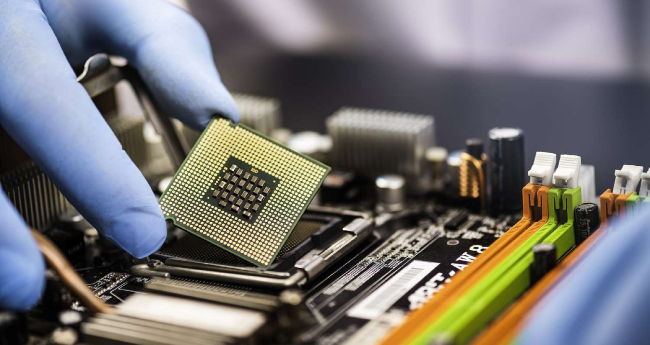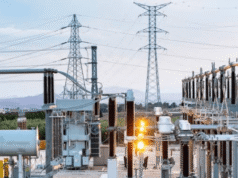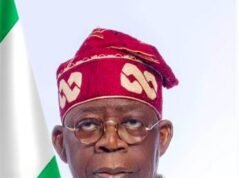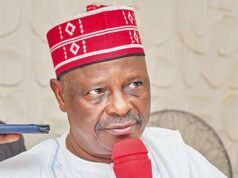In a landmark deal announced on July 28, 2025, Tesla has confirmed a $16.5 billion multiyear agreement with Samsung Electronics to manufacture its next‑generation AI6 chips. The pact, running through December 2033, marks a pivotal moment for both companies: a massive validation for Samsung’s under‑challenged foundry operations and a key milestone in Tesla’s AI ambitions.
Table of Contents

A Deeper Dive into the Deal
Samsung formally disclosed the agreement in a regulatory filing without naming the customer; Tesla CEO Elon Musk later confirmed Samsung would produce the proprietary AI6 chips at a new Texas fabrication facility. “Samsung’s giant new Texas fab will be dedicated to making Tesla’s next‑generation AI6 chip,” Musk wrote on X, underscoring the strategic magnitude of the move.
Notably, Musk emphasised that the $16.5 billion figure is just the bare minimum, predicting that actual chip output could amount to several times higher over the contract’s lifespan.
Production is slated for Samsung’s Taylor, Texas fab, part of a major U.S. investment partly enabled by the Chips and Science Act. Operations are targeted to begin in 2026, after equipment installations and testing periods through 2027.
Why It Matters: Strategic Impact for Samsung
Samsung’s foundry division has long trailed market leader TSMC, holding under 8 percent global share compared to TSMC’s 67 percent.
The Tesla contract offers a much‑needed boost. Analysts view it as a breakthrough for Samsung’s Texas site, which previously lacked anchor clients. Won‑denominated operating losses in early 2025 are expected to ease as the volume and visibility of production ramp up.
This deal also signals validation for Samsung’s advanced process roadmap—potentially including 2 nm tech—while setting a precedent likely to attract additional foundry customers.
What Tesla Stands to Gain
Tesla’s ambitions extend well beyond electric vehicles. Its AI6 chip is expected to underpin full self‑driving (FSD) functionality, support Optimus humanoid robots, and even serve AI inference and training needs for the Dojo supercomputer.
Up to this point, Tesla has relied on in‑house AI4 chips produced by Samsung and TSMC‑fabbed AI5 chips manufactured in Taiwan and Arizona. With the AI6 agreement, Tesla hopes to localise more of its chip supply chain—and secure greater efficiency and strategic control.
Musk has stated Tesla will actively assist in optimising manufacturing at the Texas fab—and even hinted at personally walking the line to ensure California‑style quality at scale.
Timeline & Technology Behind the Scenes
- Deal valid: July 24, 2025 through end of 2033 (or in some reports 2034)
- Facility: Samsung’s new fabrication plant in Taylor, Texas—expected to start production in 2026, after equipment setup and calibration in 2027
- Process tech: Likely cutting‑edge nodes (e.g. SF2, SF3, 2 nm); ensures Tesla’s AI6 chips exceed prior AI4 and AI5 generations in density and power efficiency

Market & Industry Implications
Samsung Gets Cred
For Samsung, this deal is a strategic milestone in its long quest to reclaim credibility in high‑performance foundry services. Operating losses in early 2025 had reached billions of won. But landing a marquee global client like Tesla provides a clear turnaround opportunity—even if initial margins are thin.
TSMC Retains Its Leadership—for Now
Tesla had previously allocated production of its transitional AI5 chips to TSMC, at both its Taiwan and Arizona fabs. TSMC remains the world’s largest foundry, especially for advanced nodes. Yet the Samsung deal indicates Tesla is diversifying its manufacturing base.
Strategic Sovereignty & U.S. Priorities
The location of the fab in the U.S. aligns with broader national security and industrial policy goals. Samsung’s Texas plant received multi-billion-dollar subsidies through the U.S. Chips Act, underscoring a shift toward reshoring critical semiconductor capabilities. The Tesla deal anchors Samsung’s U.S. footprint.
Auto Meets Tech: A Blurring Line
Tesla’s integration of purpose‑built AI chips highlights an evolving intersection between the auto and tech industries. Automakers have increasingly become semiconductor players—designing custom silicon, owning software stacks, and managing chip supply chains. This partnership demonstrates that shift poignantly.
Risks & Open Questions
Despite its promise, the deal carries potential pitfalls:
- Yield challenges: Samsung has struggled with production yield rates at its Texas fab. Meeting Tesla’s demand for defect density controls will test execution.
- Profitability concerns: Analysts worry that Samsung may have offered steep discounts or favourable terms to entice Tesla, which raises questions about long-term margins.
- Tesla’s autonomy delays: Tesla continues to face scepticism over its long‑promised full autonomy features, still years in development for older hardware. The rollout of AI6 doesn’t guarantee the delivery of the FSD promised since HW3.
Strategic Long View
Tesla’s move is emblematic of its broader ambition—to control as much of its stack as possible. By outsourcing wafer production yet retaining design control and onsite involvement, it seeks tighter integration from design to deployment.
Samsung, in turn, secures a marquee partnership that might coax other players in AI, robotics, or automotive to consider it alongside—or even over—TSMC.
If successful, this pact may redefine competitive dynamics in both AI chip manufacturing and EV‑scale computing. As Musk hinted, what begins as a $16.5 billion baseline might grow into a multi‑decade, much larger relationship as Tesla’s AI ambitions expand.

Key Takeaways at a Glance
| Aspect | Insight |
|---|---|
| Deal Value | $16.5 billion guaranteed; potential to grow many times over |
| Timeframe | July 2025 – Dec 2033 (or ’34 in some reports) |
| Facility | Samsung’s Taylor, Texas fab—production starts ~2026 |
| Target Chip | Tesla AI6 chips: FSD, robotics, AI inference workloads |
| Strategic Advantage | Samsung gains flagship client; Tesla secures local supply |
| Challenges Ahead | Yield rates, profitability, fulfilment of autonomy promises |
Conclusion
This agreement is no mere contract—it’s a bold declaration of intent by two of today’s most influential tech companies. Tesla Samsung AI chips pact, as a focus term, encapsulates the convergence of automotive, AI, and U.S. industrial policy in a single strategic play.
For Tesla, it’s a move toward manufacturing sovereignty. For Samsung, a potentially transformative validation in the foundry arena. Together, they may reshape expectations of how automotive firms build—and control—their silicon futures.
Join Our Social Media Channels:
WhatsApp: NaijaEyes
Facebook: NaijaEyes
Twitter: NaijaEyes
Instagram: NaijaEyes
TikTok: NaijaEyes




